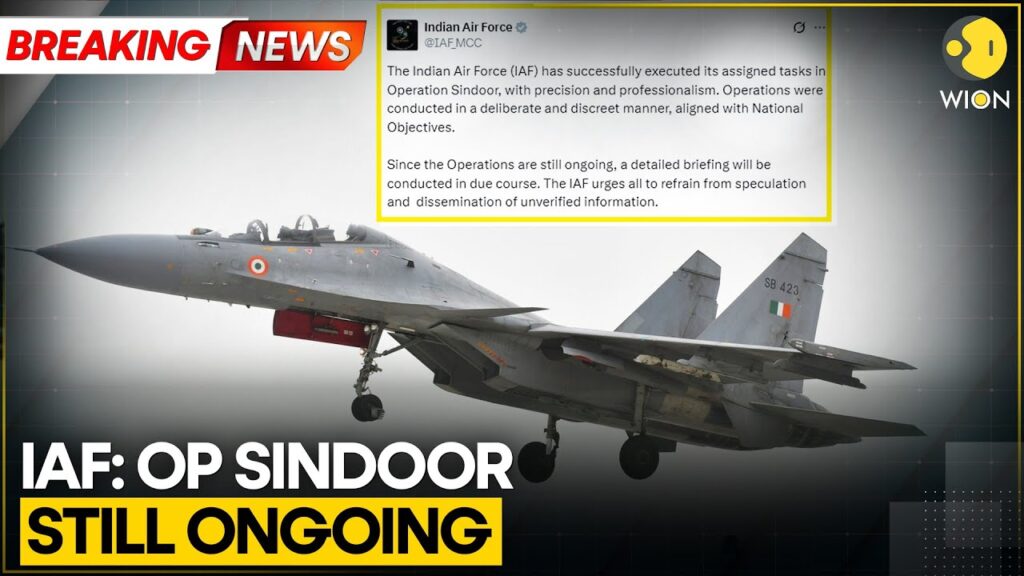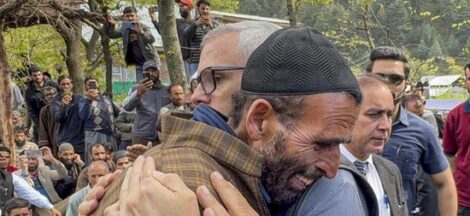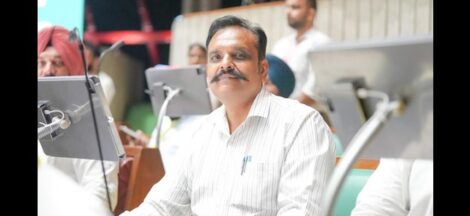India’s defence attache to Indonesia, Captain Shiv Kumar, stated at a Jakarta seminar on 10 June that the Indian Air Force had “lost some aircraft” during Operation Sindoor on 7 May, attributing the losses to instructions from political leadership to avoid targetting Pakistan’s military installations and air defences. He explained that, following that setback, tactics shifted to “suppression of enemy air defences” before deploying BrahMos missiles against terror-linked sites.
The Indian Embassy in Jakarta swiftly intervened, asserting that the media had “taken out of context” Captain Kumar’s remarks. It clarified that the attache’s presentation emphasised India’s civilian-led military ethos and that Operation Sindoor was deliberately non‑escalatory, focusing only on terrorist infrastructure—not Pakistan’s defence systems.
The controversy intensified after the opposition Congress Party seized on the remarks, accusing Prime Minister Modi’s government of deceiving the public over military setbacks. Congress communications chief Jairam Ramesh demanded transparency—questioning why the prime minister had dismissed calls for an all‑party meeting or a special parliamentary session. Pawan Khera described the development as “a direct indictment” of the government for allegedly compromising national security.
The debate echoes comments made in early June by Chief of Defence Staff General Anil Chauhan, who acknowledged that the IAF had suffered losses during the initial phase of the operation. Speaking at the Shangri-La Dialogue in Singapore, he emphasised that India quickly “rectified tactics” after early losses and invalidated Pakistan’s claim of shooting down six jets, calling such figures “absolutely incorrect”.
Operation Sindoor was initiated on 7 May following a terror attack in Pahalgam on 22 April, which killed 26 civilians. India launched precision strikes on nine terror-linked sites in Pakistan-administered territories and Punjab province, employing long–range missiles and loitering munitions. The government described the operation as “focused, measured, and non‑escalatory,” emphasising that no Pakistani military facilities were targeted.
Pakistan responded with artillery and aerial retaliation. While Islamabad maintained that six Indian jets had been downed, General Chauhan rejected that claim and provided no official count when referring to “losses”.
Political analysts point out that Captain Kumar’s candid remarks in Jakarta broke from India’s traditional military narrative, which generally avoids public admission of losses. The embassy’s clarification appears aimed at reinforcing control over the strategic messaging surrounding civilian oversight of the armed forces, distinguishing India from its neighbours.
Congress leaders argue that openness about such losses is essential for democratic oversight and policy accountability. They point to the disparity between opaque government briefings and public remarks from military officials like Chauhan and Kumar. Their push for parliamentary engagement signals a broader demand for transparency on military affairs closely tied to national security strategy.
Some national security experts believe elucidating the political‑military decision‑making process under civilian control strengthens democratic norms. However, others caution that revealing operational constraints in public forums may risk strategic disadvantage or be exploited by adversaries.
Within the IAF, a shift in tactics was reportedly adopted mid-operation. As Captain Kumar explained, after early losses, the focus turned to suppressing Pakistan’s air defence systems—primarily using anti-radiation and cruise missiles—before engaging targets. This change reportedly enhanced mission effectiveness for the longer‑range missile strikes.
Internationally, analysts from think‑tanks such as the Stimson Center and RUSI have described Operation Sindoor as a “calibrated use of force” that demonstrated India’s resolve against terrorism while avoiding broader escalation. They highlight that the Indian military’s admission of initial setbacks followed by tactical refinement underscores operational learning rather than strategic failure.
As Parliament returns from recess, the debate over military transparency and political decision‑making is likely to intensify. Whether the government will convene a dedicated session or engage Opposition parties on Operation Sindoor remains uncertain. The defence ministry has so far maintained that strategic decisions were appropriate and aligned with India’s democratic framework and international posture.




 Half‑Measure Leaves Indus Waters Treaty in Legal Limbo
Half‑Measure Leaves Indus Waters Treaty in Legal Limbo 